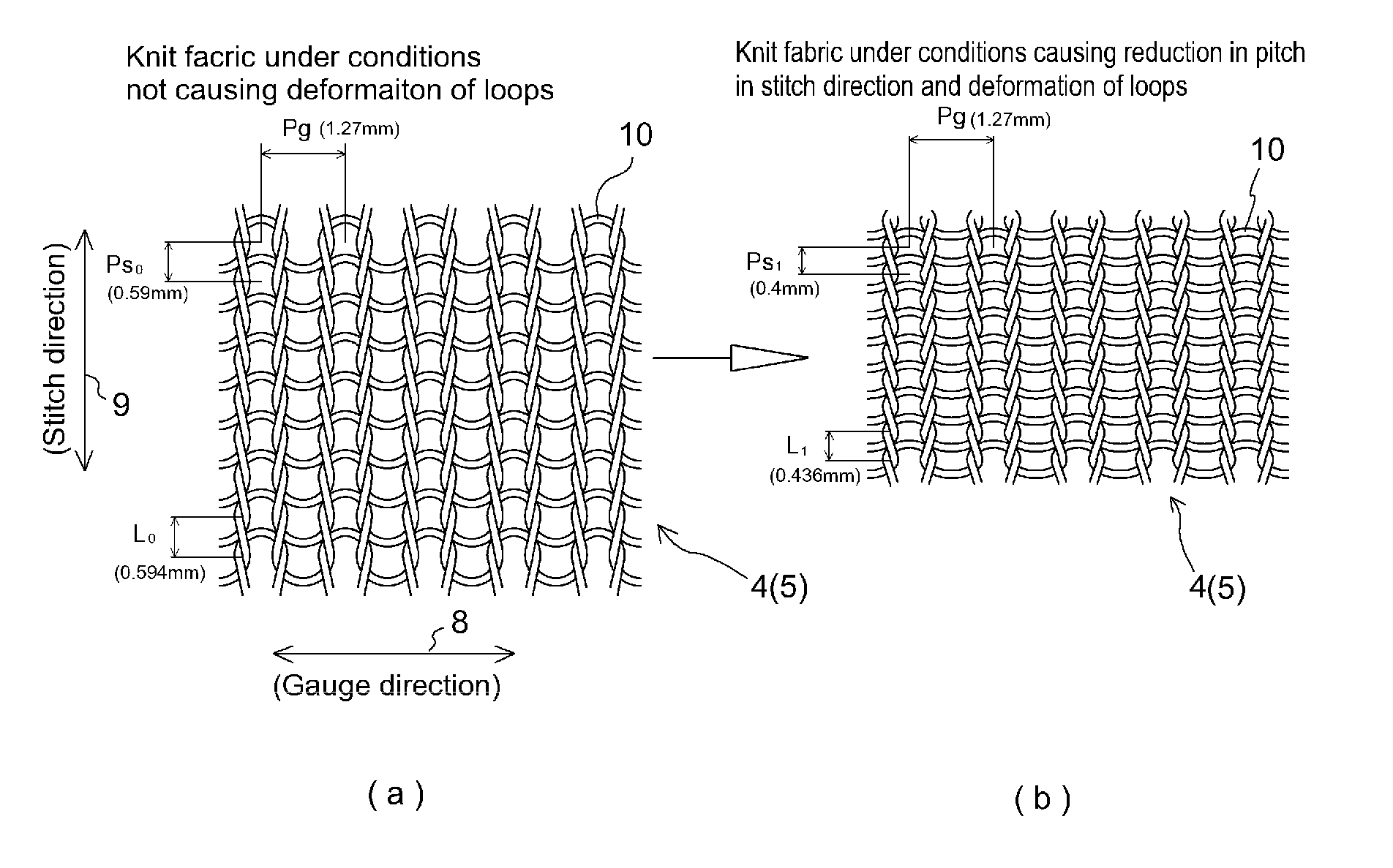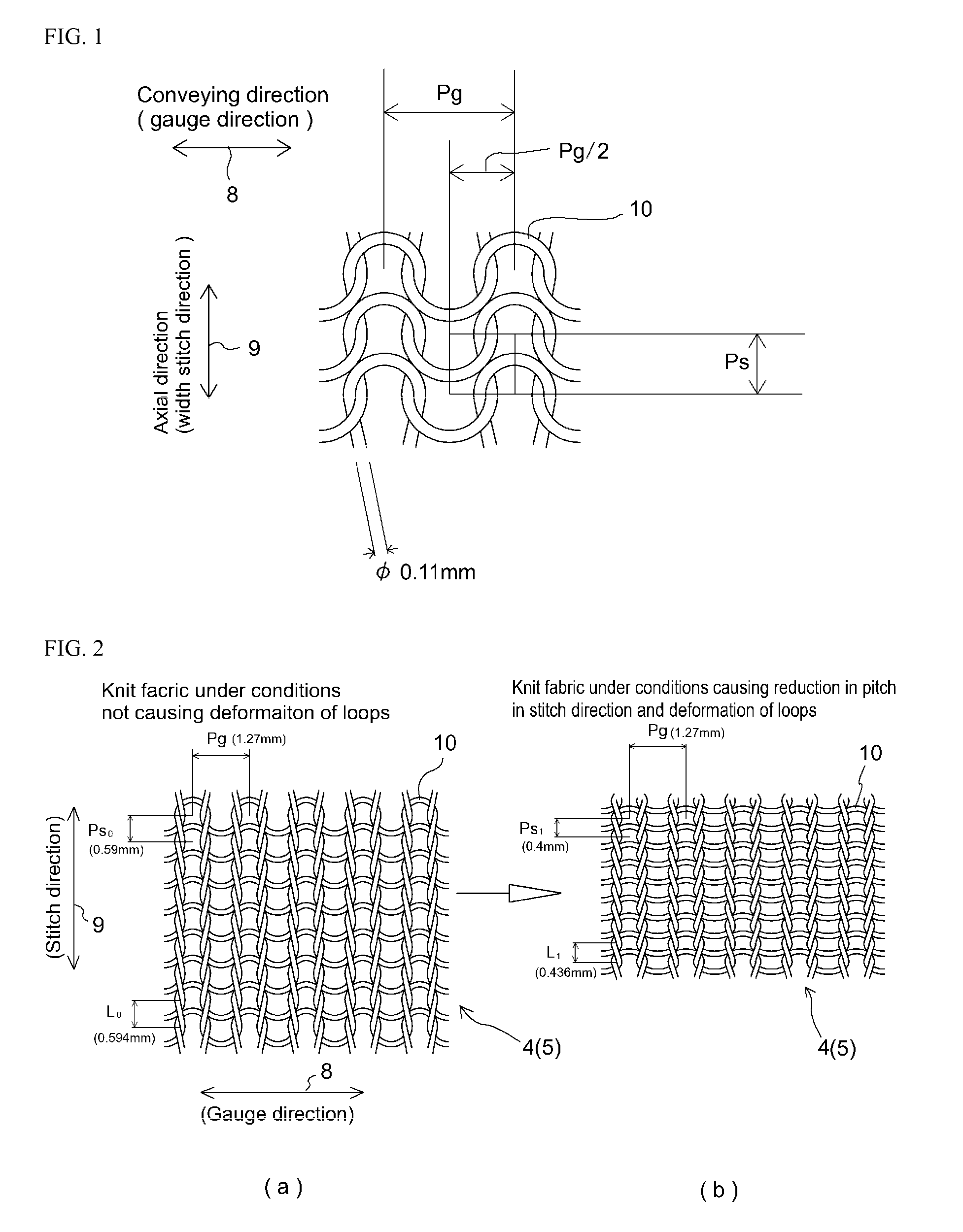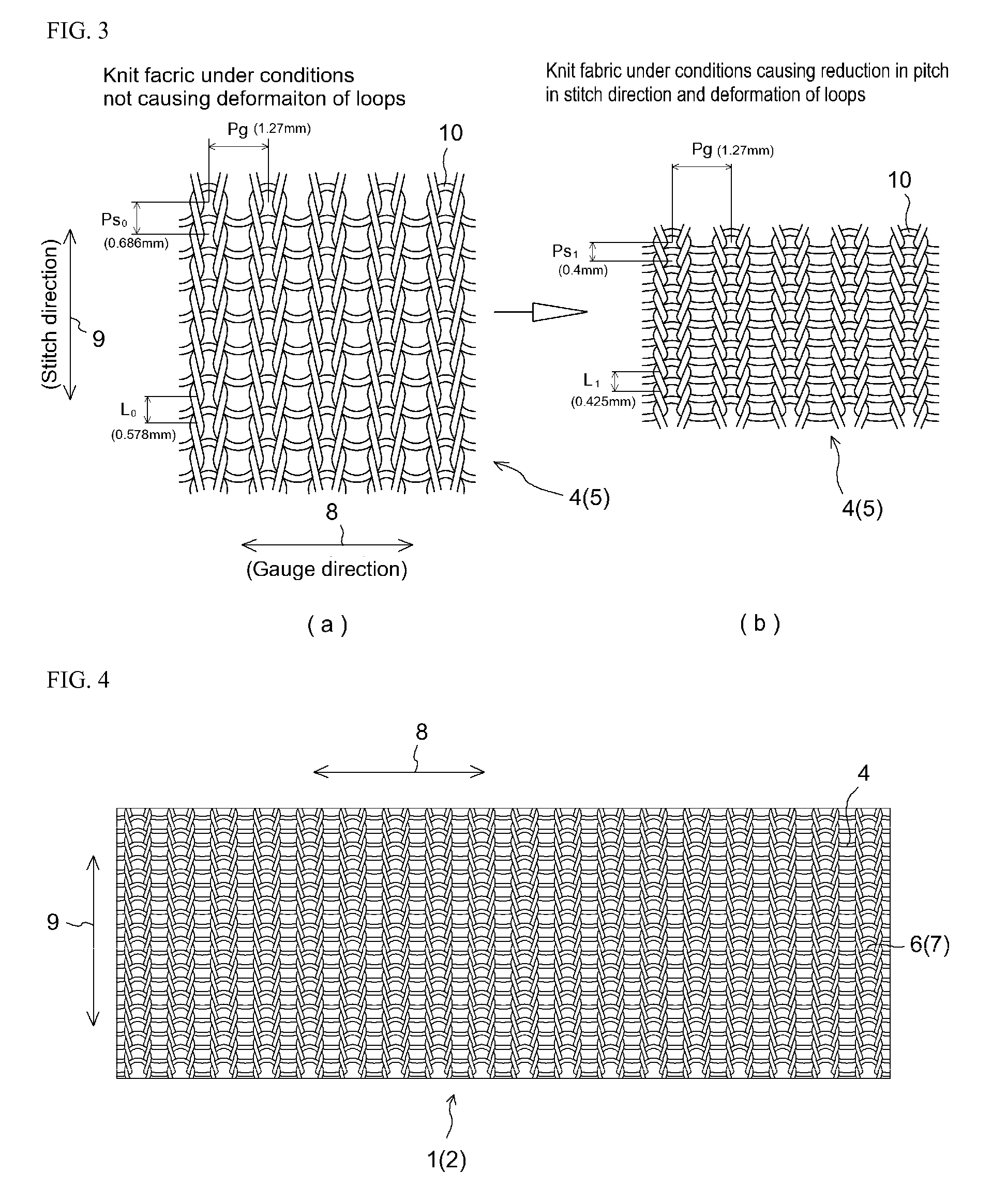Conveyer belt and apparatus
a conveyor belt and belt end technology, applied in the field of conveyor belts, can solve the problems of increased cost, insufficient flexibility for use as a conveyor belt, and yarn fraying at the belt side end, and achieve the effect of reducing the degree of elongation, stably conveying the object, and increasing the curvature of the loop
- Summary
- Abstract
- Description
- Claims
- Application Information
AI Technical Summary
Benefits of technology
Problems solved by technology
Method used
Image
Examples
working examples
[0072]Shown in TABLE 1 is comparison of Working Examples 1 through 6 of a conveyor belt 1 in accordance with the present invention and a Comparative Example of a conveyor belt having mesh made in plain weave which was woven fabric. As indicated at TABLE 1, these conveyor belts 1 were such that steam heat-setting was carried out at a temperature of 115° C. Filament material at Working Examples 1 through 4 and at Working Example 6 was Nylon (trade name; hereinafter “nylon”), i.e., polyamide fiber, thickness of nylon fibers for example being 220 (D / F) at Working Example 1. Note that D at (D / F) indicates decitex; while F indicates fibers, this being a unit for indicating number of fibers. At Working Examples 1 through 4, to increase the coefficient of friction of nylon with respect to the conveying direction of weft knit conveyor belt 1, yarn comprising urethane fiber(s), being elastic fiber(s) having low melting point(s), was used to carry out plating with respect to the material of th...
PUM
| Property | Measurement | Unit |
|---|---|---|
| height | aaaaa | aaaaa |
| height | aaaaa | aaaaa |
| height | aaaaa | aaaaa |
Abstract
Description
Claims
Application Information
 Login to View More
Login to View More - R&D
- Intellectual Property
- Life Sciences
- Materials
- Tech Scout
- Unparalleled Data Quality
- Higher Quality Content
- 60% Fewer Hallucinations
Browse by: Latest US Patents, China's latest patents, Technical Efficacy Thesaurus, Application Domain, Technology Topic, Popular Technical Reports.
© 2025 PatSnap. All rights reserved.Legal|Privacy policy|Modern Slavery Act Transparency Statement|Sitemap|About US| Contact US: help@patsnap.com



